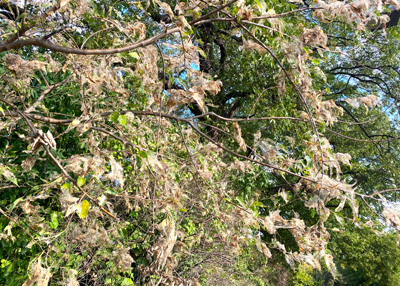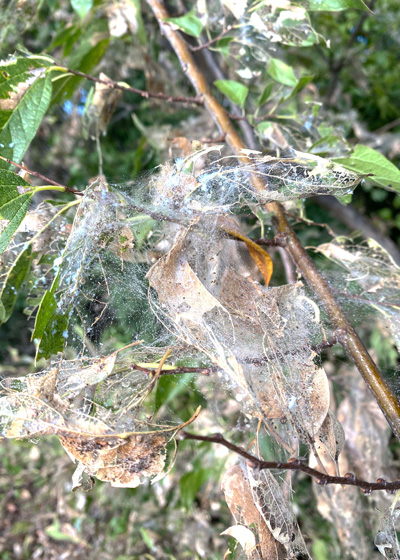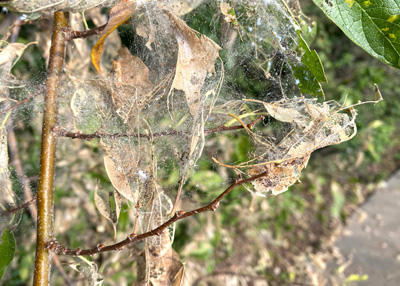A Pest of Little Concern
I’ve been holed up working on a couple of big projects the past two weeks. (Admittedly, one of them was finishing up taxes.) I haven’t been out observing landscapes quite as much as usual.
I had a couple of calls on my radio programs and two e-mails from friends asking about “blankets of what looked like snow” covering their trees. But no one told me it was hackberries, and no one sent me a photo.
Early this week we finally turned in the last of our tax things and stopped by for a quick sandwich. There in Plano, plain as day were a dozen big hackberries looking just as had been described.

I did 5 minutes of Web browsing and quickly found that the trees had been visited by cankerworms and hackberry leafrollers. Texas A&M is quoted all over the place, by NPR, by national, state and local media and in neighborhood blogs. And it all starts with the ID of the afflicted tree species.
It seems the rains of several weeks ago brought on a flush of fall growth and that in turn prompted a burst of these caterpillars.

They’re not much of a problem in the spring, and they’re even less of a concern now. The trees will rebound just fine next March – they were going to lose all these leaves anyway. Spraying is certainly not justified. Nor would it be should an outbreak occur in some upcoming spring. Just sit tight and let the trees fend for themselves.

As for the unsightly webs, they’ll fall from the trees as the leaves come down in a few weeks. Any that hang in place eventually will fall over the winter.
So, net result: nothing to do now.
